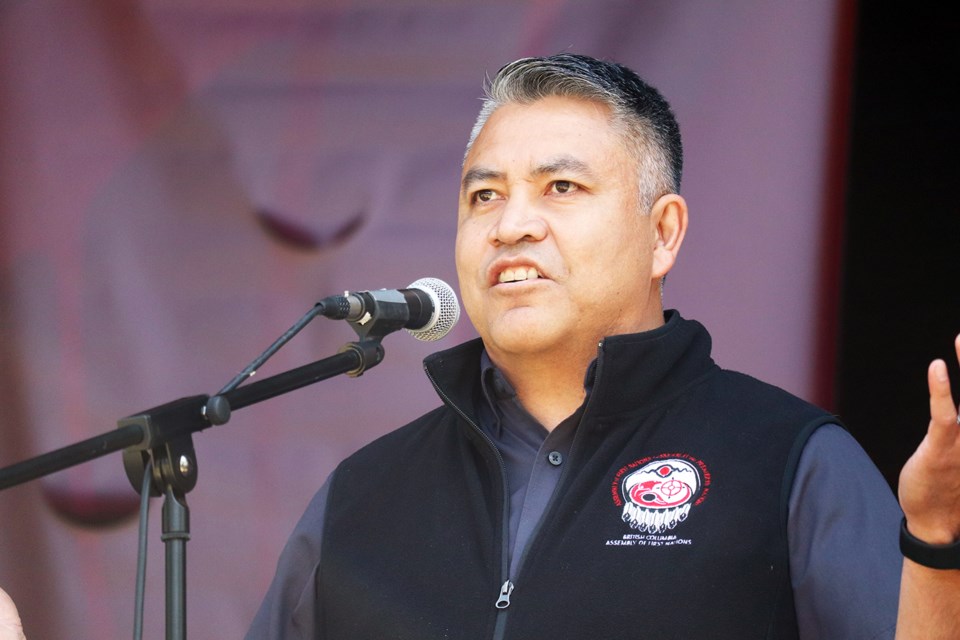B.C. Assembly of First Nations (BCAFN) Regional Chief Terry Teegee is speaking out against the City of Prince George’s decision to appeal the BC Supreme Court ruling, which allows a tent city on Lower Patricia to remain in place.
The City announced today that after reviewing legal advice it will be sending an application to the BC Supreme Court to close the Lower Patricia encampment when evidence of suitable housing has been provided by B.C. Housing.
The City said it will also be appealing Chief Justice Hinkson’s ruling to the BC Court of Appeal, and will be seeking financial assistance on the cost of the appeal from the Union of B.C. Municipalities (UBCM) appeal fund and other local governments in B.C.
“I’m certainly disappointed that the city of Prince George has decided to file an appeal to destroy some of the homes that the encampments of the homeless people in Prince George,” said Teegee, in an interview with the Prince George Citizen.
“I see it as a waste of resources and money. They should be helping and assisting many of the homeless in Prince George rather than administering bylaw tickets or over-policing and this is really not solving the issue.”
In his ruling, Chief Justice Hinkson determined the Lower Patricia encampment, commonly known as Moccasin Flats, could remain in place until suitable housing is available.
He found there was inadequate shelter space available that respondents could access, and they would not be able to lawfully comply with the city’s injunction without being in breach of the city’s Safe Streets Byalw.
This bylaw allows for ticketing for behaviours such as asking for money after dark or sleeping in doorways.
The city was allowed to dismantle the George Street encampment which had fewer occupants, and on Nov. 2 moved 20 people into supportive housing before fencing up the area.
The City said appealing the ruling will address what the city believes to be “errors within the law” withing the BC Supreme Court’s reason for judgement.
“With the bylaw and this court injunction and the appeal, it really demonstrates that municipalities such as the city of Prince George are ill-equipped to deal with the homelessness issue,” added Teegee. “This isn’t the way to resolve those issues.”
Teegee also stated that although the city is creating more housing opportunities, a number of those beds still have a lot of barriers.
“They have too many barriers and they're also not dealing with the fundamental issues of why many people are homeless,” said Teegee, citing the mental health and addictions issues that many unhoused people face.
Teegee said he hopes UBCM does not support the financial cost of the City’s appeal.
He referenced a 2015 Supreme Court of British Columbia ruling, Abbotsford vs. Shantz, which precludes municipalities from prohibiting the homeless population from erecting temporary shelters at night in public spaces.
“You just simply can't kick people out. You can't kick people out of the encampments without providing the homes and the necessary resources for those people,” said Teegee.
“It boggles my mind why they would pursue this type of case once again because the Supreme Court of BC already stated that you can't do that.”
Teegee said he would like to see different levels of government and organizations work toward providing wrap-around services that address the fundamental issues of why someone might be experiencing homelessness.
“With municipalities, there should be an understanding that they're ill-equipped to deal with this issue,” added Teegee.
“It's not just municipalities that can resolve these issues. It does take partnerships with the province and federal government and First Nations governance and societies.”
In a news release, the city stated the purpose of the new BC Supreme Court application is for public safety for both the Lower Patricia encampment occupants and neighbouring residents and businesses.
"The City has been working closely with BC Housing and is informed that housing and emergency shelter space is available now,” stated the City, however, as this is a legal action the city says it will not have any further comment.







